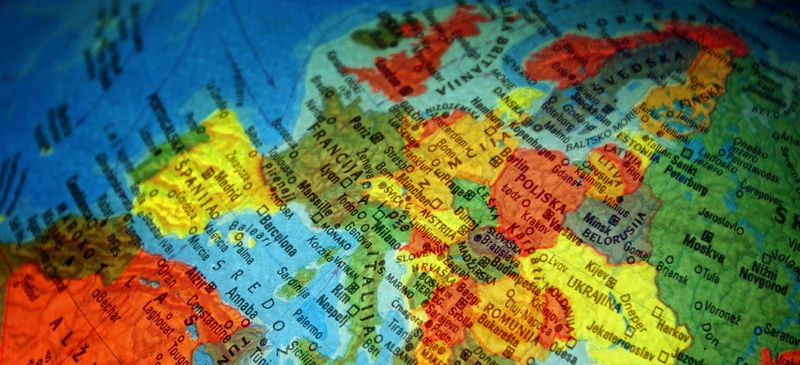
Welcome to the neighbourhood
The enlargement of the EU is slowing down. Bulgaria and Romania have just joined, bringing the membership to 27, but in many EU countries there is little enthusiasm for extending the Union's boundaries further. Governments worry that unless the EU institutions undergo drastic reform – which seems unlikely – further enlargement would render the EU incapable of speedy or effective decision-making. Ordinary voters worry that more enlargement would lead to mass immigration from new members coupled with job losses. Croatia may be lucky enough to join the EU around 2010, but the other Western Balkan states have little prospect of acceding in the foreseeable future; additionally, Turkey’s accession talks with the EU are going nowhere.
Until now, the EU has used the accession process as its main method for promoting economic and political reform in its neighbourhood. But with enlargement slowing down, it needs new methods. Germany, which has just taken over the EU presidency, says that a new "European neighbourhood policy" will be a priority. A key challenge for the EU this year will be to build stronger ties with neighbors that are not on the road to membership.
The EU’s current neighbourhood policy, in place since 2004, is proving inadequate. Under present guidelines, the EU has to negotiate an "action plan" with each neighbor, promising trade, aid, political contacts and participation in EU programs – though not membership – in return for a series of specified reforms. Action plans have already been formed with Armenia, Azerbaijan, Georgia, Israel, Jordan, Morocco, Moldova, the Palestinian Authority, Tunisia and Ukraine. If the regime in Belarus became less autocratic, it too could participate in the neighbourhood policy.
Several of the action plans have been modestly successful. Ukraine has adapted some of its laws and standards to match those of the EU, and will gain an easier visa regime in return. Morocco and Moldova have improved borders controls. Jordan, Morocco and Tunisia have set up forums to discuss governance, democracy and human rights. But the neighbourhood policy is failing to transform neighbors in the way the accession process transformed much of Eastern Europe. The carrots held out by the EU are not appealing enough to motivate political elites to undertake many of the painful reforms required.
The EU’s efforts to build a new neighbourhood policy have implications for Russia. Some Russians, seeing the former Soviet countries of Eastern Europe as part of the Russian sphere of influence, oppose closer ties between the EU and Ukraine, Moldova and Georgia. Some Americans, and even a few European policymakers, similarly see Eastern Europe as part of a geopolitical "great game": they talk of rolling back Russian influence in the region. However, as far as most EU governments are concerned, what matters in these countries is the speed and quality of political and economic reform. They believe that it does not matter whether an election-winner is pro-Moscow or pro-Western, so long as the electoral process is free and fair.
Russians would be wrong to think that the EU wants to "grab" these countries. Quite the contrary: most Europeans are horrified by the thought of Ukraine joining the EU. Of the 27 member-states, only Poland and the Baltic States are in favor. The others view Ukraine as a faraway, poor, complicated and unstable country that would cause trouble if offered EU membership.
It is because the EU does not want to take in the likes of Ukraine and Georgia that it is trying to beef up its neighbourhood policy. Germany has plans to integrate neighbors with EU energy markets and transport networks. The Commission will offer Ukraine and other neighbors “deep free trade” with the EU. That would mean scrapping not only tariffs, but also some non-tariff barriers to trade and investment.
The EU should go further. It should offer the best-performing neighbors partnerships in the Common Foreign and Security Policy (CFSP). If countries such as Georgia and Ukraine make steady progress towards becoming liberal democracies, the EU should ask them to send diplomats to the Council of Ministers in Brussels. They would take part in discussions on policies of common interest, such as Black Sea security, non-proliferation, counter-terrorism and illegal immigration. The partners would help to shape EU policy but, not being members, could not vote on it; once the EU governments had decided a policy, the partner would be free to sign on to it, or not.
Such partners would gain several benefits. Their politicians and bureaucrats would learn about the EU ethos of compromise. These neighbors would find it much easier to adopt the acquis communautaire (the body of EU laws candidate countries must adopt) in foreign policy – much of which is declarations – than in other areas, such as the single market. Above all, joining the CFSP would make countries such as Ukraine and Georgia feel a little safer. Many Georgians and some Ukrainians view NATO membership as the best guarantee of their security. But since that goal remains a distant prospect, they may favor closer security ties with the EU as an interim step. Russia would probably not be very happy to see such countries join the CFSP. But it would surely favor that option to the enlargement of NATO.
Such ideas for strengthening neighbourhood policy will only work if they are seen as membership neutral. Some Georgians and Ukrainians will sniff at any offer that does not mention the goal of membership. But when they realize that membership is not on the cards for the foreseeable future, they may welcome other ways of moving closer to the EU. Similarly, some EU countries hostile to enlargement will be reluctant to give neighbors a status that could be seen as a steppingstone to membership. But in time, they may see that the EU has a strategic need to foster reform in its neighbors, and that it must therefore give them a closer embrace.
